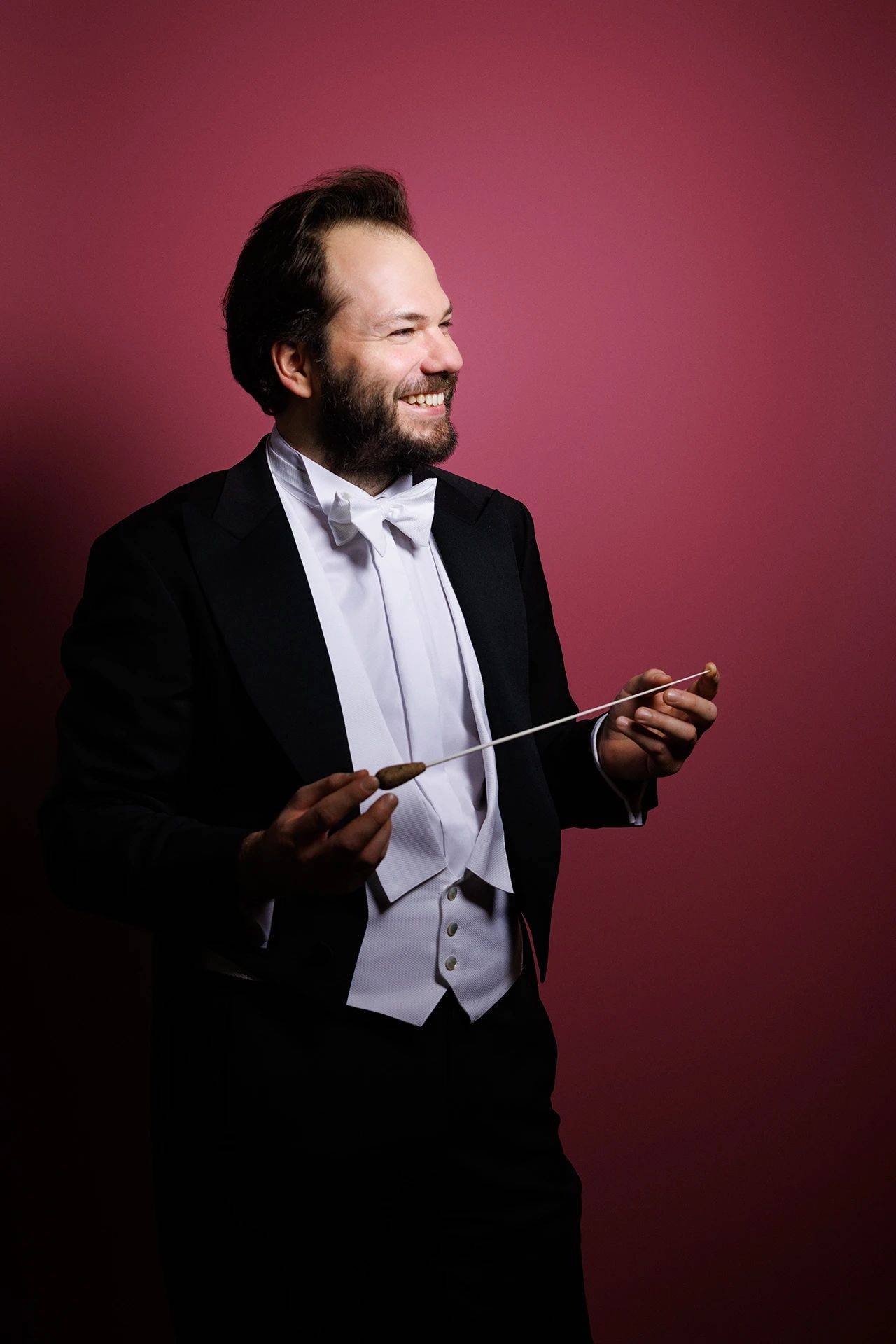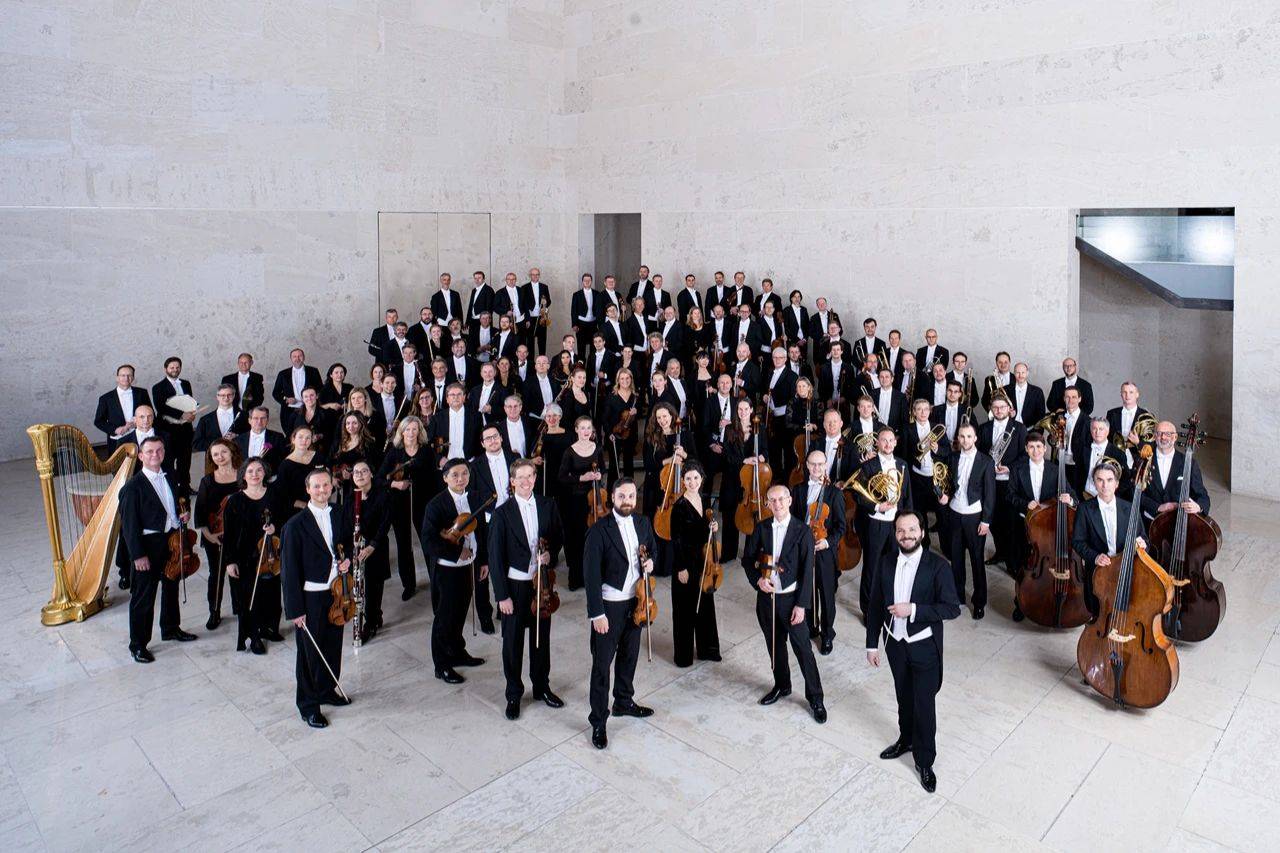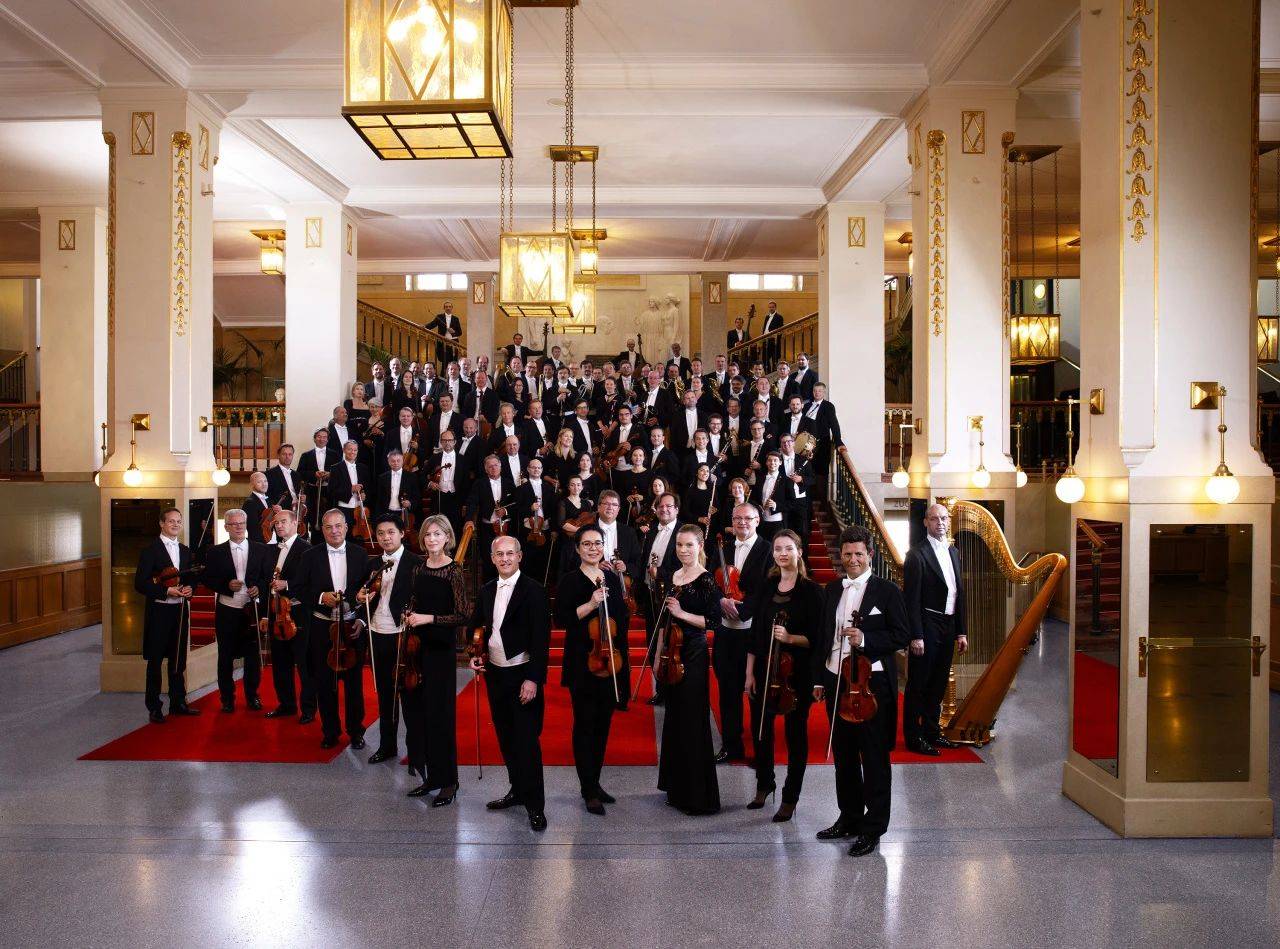
Wiener Symphoniker
Venue:
National Centre for the Performing Arts - Concert Hall
2 West Chang'an Avenue Xicheng Beijing
Date:
4/2/2025 - 4/4/2025

Wiener Symphoniker
4/2/2025 - 4/4/2025
National Centre for the Performing Arts - Concert Hall
2 West Chang'an Avenue Xicheng Beijing
¥280 - ¥1080
Event details
⚠️ Confirmation e-mail for entry
👉 Confirmation within 24 hours
👉 Collect paper tickets @ venue
👉 Children under 1.2 meters are not allowed to enter
👉 No cancellation
Programme
April 2nd, 2025
Music: Giuseppe Verdi
"Ballabili", ballet music from the melodrama "Macbeth"
Music: Giuseppe Verdi
Ballet music from the opera “Aida”
Ballet music from the opera “Aida”
Music: Giuseppe Verdi
Ballet music from the opera “Don Carlo”
Ballet music from the opera “Don Carlo”
- Intermission -
Music: Richard Wagner
"Die Walküre, Act 1", from "Der Ring des Nibelungen", WWV 86B
"Die Walküre, Act 1", from "Der Ring des Nibelungen", WWV 86B
April 3rd , 2025
Music: Wolfgang Amadeus Mozart
Symphony No. 38 in D major, KV 504 "Prague"
I. Adagio - Allegro
II. Andante
III. Finale: Presto
- Intermission -
Music: Gustav Mahler
Symphony No. 4 in G major
I.Bedächtig.Nicht eilen
II.In gemächlicher Bewegung.Ohne Hast
III.Ruhevoll, poco adagio
IV.Sehr behaglich
Symphony No. 4 in G major
I.Bedächtig.Nicht eilen
II.In gemächlicher Bewegung.Ohne Hast
III.Ruhevoll, poco adagio
IV.Sehr behaglich
April 4th , 2025
Music: Johann Strauss II
Arr.: E. Korngold
Overture to the operetta "Eine Nacht in Venedig"
Music: Johann Strauss II
Blumenfest-Polka Op. 111
Blumenfest-Polka Op. 111
Music: Johann Strauss II
"Wo die Zitronen blüh'n", waltz Op. 364
"Wo die Zitronen blüh'n", waltz Op. 364
Music: Johann Strauss II
"Gruß an Wien", Polka française Op. 225
"Gruß an Wien", Polka française Op. 225
Music: Johann Strauss II
Romance No. 2 for Cello and Orchestra Op. 255
Romance No. 2 for Cello and Orchestra Op. 255
Music: Josef Strauss
"Auf Ferienreisen!" ("On a Holiday!"), polka fast Op. 133
"Auf Ferienreisen!" ("On a Holiday!"), polka fast Op. 133
- Intermission -
Music: Pyotr Ilyich Tchaikovsky
Polonaise from the lyrical scenes "Eugene Onegin" Op. 24
Polonaise from the lyrical scenes "Eugene Onegin" Op. 24
Music: Pyotr Ilyich Tchaikovsky
Entr'acte and walt from the lyrical scenes "Eugene Onegin" Op. 24
Entr'acte and walt from the lyrical scenes "Eugene Onegin" Op. 24
Music: Pyotr Ilyich Tchaikovsky
Capriccio Italien, Op. 45
Capriccio Italien, Op. 45
Music: Johann Strauss II
"Figaro-Polka" Op. 320
"Figaro-Polka" Op. 320
Music: Johann Strauss II
"Rosen aus dem Süden" ("Roses from the South"), Waltz Op. 388
"Rosen aus dem Süden" ("Roses from the South"), Waltz Op. 388
The above information, including performance times, lineups, programmes and ticket prices, are all subject to change without prior notice and for reference only.

Conductor: Petr Popelka
Petr Popelka has established himself as one of the most beloved and in demand conductors of his generation. He will become Chief Conductor of the Wiener Symphoniker with the 2024/2025 season and is currently Chief Conductor and Artistic Director of the Prague Radio Symphony Orchestra. He previously held the position as Chief Conductor of the Norwegian Radio Orchestra in Oslo.From the 2023/2024 season, Popelka will, as Chief Conductor Designate, lead the Wiener Symphoniker in a new production of Weinberger's Schwanda the Bagpiper at the MusikTheater an der Wien, in addition to joining the orchestra for multiple concerts in Vienna and on two European tours. Debuts in 2023/2024 include a production of Mozart's Don Giovanni at the Zurich Opera House, Gewandhausorchester, Munich Philharmonic, Pittsburgh Symphony Orchestra, Orchestre National de France and Orchestre National du Capitole de Toulouse. He also returns to the Rundfunk-Sinfonieorchester Berlin, Orchestre Philharmonique du Luxembourg, Danish National Symphony Orchestra and Bergen Philharmonic Orchestra, among many other reinvitations.
Previous highlights include engagements with the Czech Philharmonic Orchestra, Sächsische Staatskapelle Dresden, Bamberg Symphony Orchestra, SWR Symphony Orchestra, NDR Elbphilharmonie Orchestra, Frankfurt Symphony Orchestra, Deutsche Radio Philharmonie, Mozarteumorchester Salzburg, Orchestra Sinfonica Nazionale della RAI and Swedish Radio Symphony Orchestra, to name a few. He has also led the annual ORF TV concert “Spring in Vienna” and the ZDF Advent concert in Dresden. His new productions of Shostakovich's opera The Nose at the Dresden Semperoper and Strauss's Elektra at the Oslo Opera were received to critical acclaim.
Petr Popelka received his musical education both in his hometown of Prague as well as in Freiburg. Between 2010 and 2019, he was deputy principal double bass of the Sächsische Staatskapelle Dresden. Alongside his conducting, he is an avid composer.


Wiener Symphoniker
With a rich history steeped in tradition, the courage to stand apart and an enduring joy of discovery, the Wiener Symphoniker are the beating heart of the metropolis of classical music, Vienna. For 120 years, the orchestra has shaped the special sound of its native city, forging a link between past, present and future like no other.
With a rich history steeped in tradition, the courage to stand apart and an enduring joy of discovery, the Wiener Symphoniker are the beating heart of the metropolis of classical music, Vienna. For 120 years, the orchestra has shaped the special sound of its native city, forging a link between past, present and future like no other.
That the Wiener Symphoniker were formed in 1900 of all years is no coincidence. The fresh wind of Viennese Modernism swirled around this new orchestra, which confronted the challenges of the 20th century with confidence and vision. This initially included the assured command of the city's musical past: they were the first orchestra to present all of Beethoven's symphonies in the Austrian capital as one cycle. The humanist and forward-looking legacy of Beethoven and Viennese Romanticism seems tailor-made for the Symphoniker, who are justly leaders in this repertoire to this day.
That pioneering spirit, however, is also evident in the fact that within a very short time the Wiener Symphoniker rose to become one of the most important European orchestras for the premiering of new works. They have given the world premieres of many milestones of music history, such as Anton Bruckner's Ninth Symphony, Arnold Schönberg's Gurre-Lieder, Maurice Ravel's Piano Concerto for the Left Hand and Franz Schmidt's The Book of the Seven Seals - concerts that opened a door onto completely new worlds of sound and made these accessible to the greater masses. The importance that the Wiener Symphoniker continue to place on collaborations with contemporary composers such as Olga Neuwirth, Wolfgang Rihm, HK Gruber, Thomas Larcher, Johanns Maria Staud, Michael Jarrell, Guillaume Connesson, Dieter Ammann and Jörg Widman has positioned them as one of the most important driving forces in contemporary music, both in Vienna and internationally. And among their chief conductors over the past 120 years - among them Bruno Walter, Wilhelm Furtwängler, Hans Swarowsky, Herbert von Karajan, Wolfgang Sawallisch and Georges Prêtre - one can also find numerous visionary figures whose impact has had a lasting influence on the future of classical music.
Notwithstanding their determination to constantly move forward, the Wiener Symphoniker have always been characterised by their extraordinary ability to stay grounded and by the closeness they enjoy with their audience. Their so-called Volksthümlichen Concerten ('People's Concerts') and Arbeiter-Symphoniekonzerte ('Workers Symphonic Concerts') ensured from the very beginning that classical music would no longer be the exclusive domain of the elite. Today, the orchestra gives concerts at unusual venues throughout all of Vienna's districts as part of its Grätzl-Konzerte ('neighbourhood concerts') and continues to fill every corner of the city with musical life.
As official cultural ambassadors of Vienna, the Wiener Symphoniker readily showcase the unmistakable sound of their home beyond the city walls, performing as welcome guests in the great concert halls of the world. And the world comes just as frequently to the Austrian capital. This can be seen, among other things, in the orchestra's illustrious roster of past guest conductors, which has consistently included such great names as Lorin Maazel, Zubin Mehta, Claudio Abbado, Carlos Kleiber and Sergiu Celibidache. And as Orchestra in Residence of the Bregenz Festival, the Wiener Symphoniker have been delighting a colourful opera audience for decades.
Notice
Date: Wednesday, 2nd Apr. - Friday, 5th Apr. @ 19:30
Price: 280/380/580/680/780/880/1080

Follow our WeChat for event news, deals, gossip and more!
Book Now
Wiener Symphoniker
Venue:
National Centre for the Performing Arts - Concert Hall
2 West Chang'an Avenue Xicheng Beijing
Date:
4/2/2025 - 4/4/2025
© 247tickets 2020 沪ICP备19024898号-2

 Add us on WeChat to speak to our friendly customer service team! ID: Tickets247Tickets
Add us on WeChat to speak to our friendly customer service team! ID: Tickets247Tickets